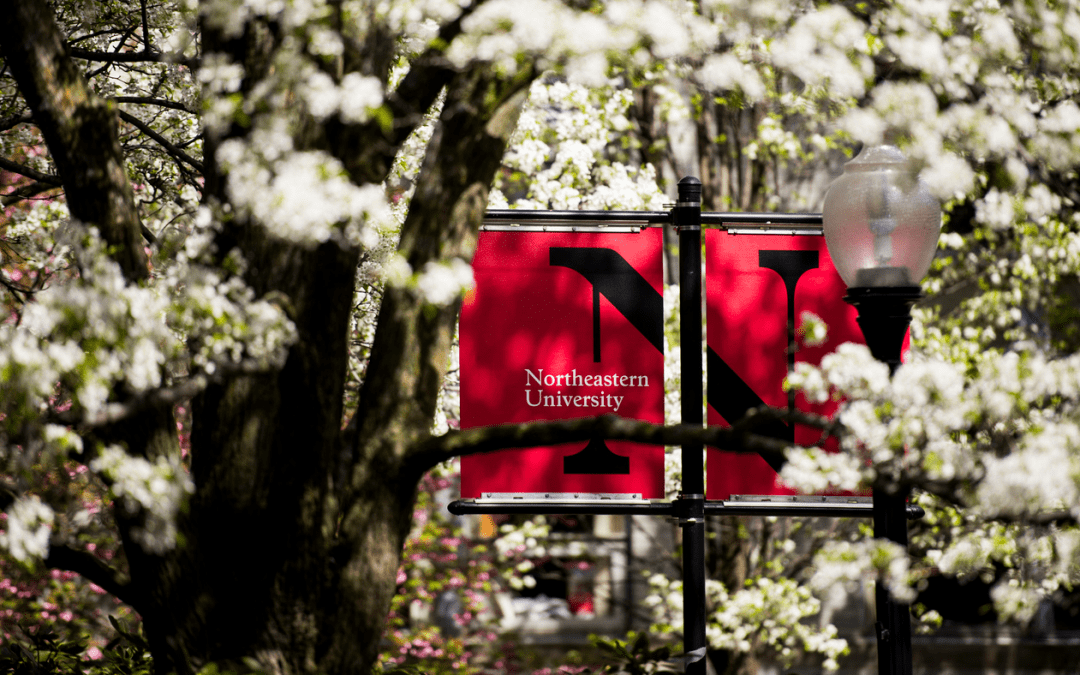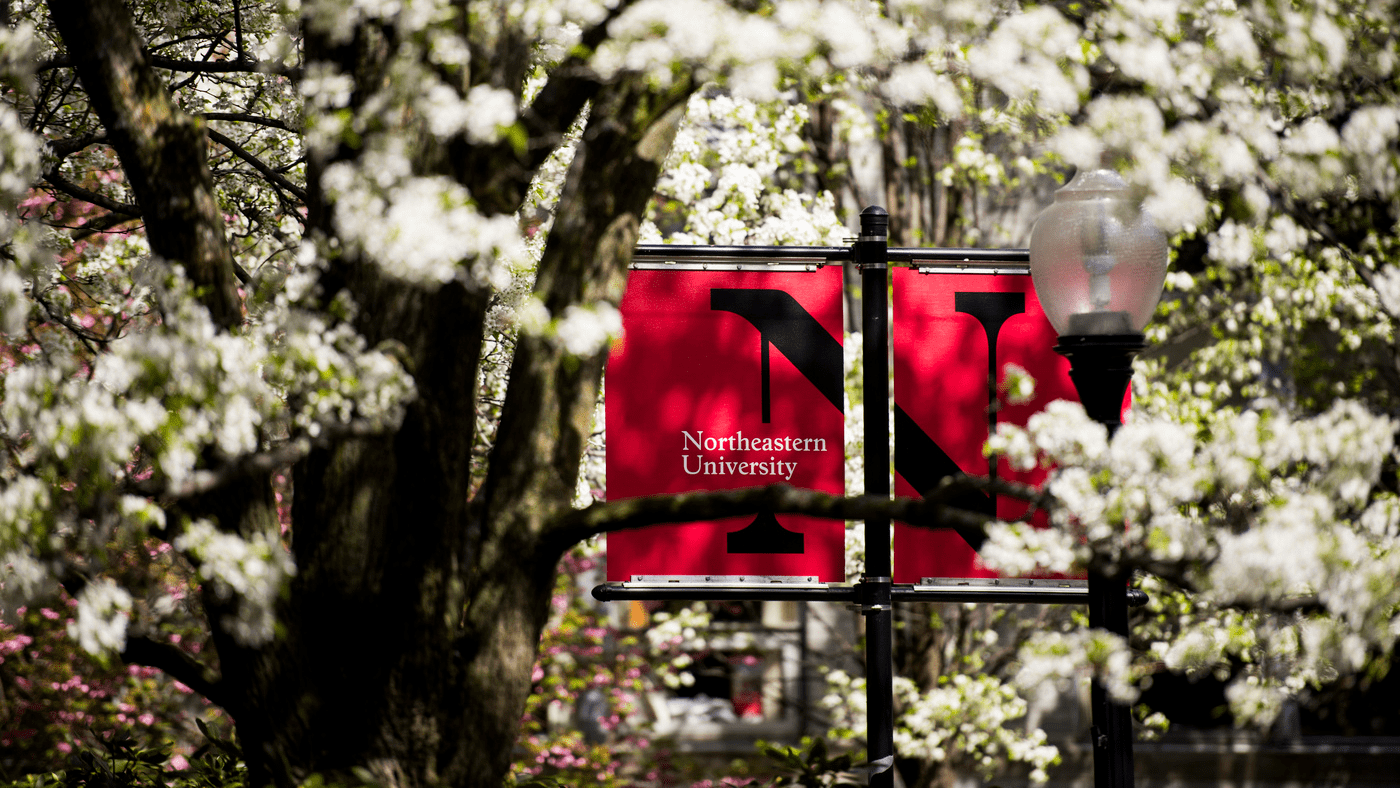About Research Computing’s Co-op Program:
Research Computing (RC) co-op opportunities vary greatly based on the interests of the science team, potential partnerships with Northeastern researchers, and new and exciting ideas to improve the HPC cluster. An ideal RC Co-op candidate will have a solid background in computer science, acquired either through academic coursework or hands-on experience. Some areas of specialization that have been required in the past are bioinformatics, machine learning, and computational sciences. RC co-ops are hired for 4-6 months to allow co-ops time to make substantial contributions to the RC team. If you’re interested in preparing as much as possible for upcoming RC Co-op opportunities, you can join the RC Training Course in Canvas to view recorded training sessions at your own pace.

Neelima Cherukuri
Assistant Bioinformatician
Neelima Cherukuri is a passionate graduate student skilled in Python, R, and data science. With a Master’s in Bioinformatics from Northeastern and a Bachelor’s in Bioinformatics from Sathyabama University.
LinkedIn: www.linkedin.com/in/neelimacherukuri
What motivated you to pursue your respective field of study at Northeastern University?
I chose to pursue a Masters in Bioinformatics at Northeastern University due to my interest in merging biology with information technology. Northeastern’s curriculum, which covers essential topics like Bioinformatics Computational Methods and Machine Learning, coupled with its focus on experiential learning, aligned with my career goals. The university’s renowned faculty, advanced facilities, and its location in Boston’s biotech hub offered an ideal environment for both theoretical and practical learning in bioinformatics.
How did your co-op experiences contribute to your professional development?
My experience as an Assistant Bioinformatician has been pivotal in shaping my professional growth. It allowed me to refine my technical skills, particularly in bioinformatics workflows like SNP calling with ipyrad and quality control using FastQC and multiQC. Facing and overcoming challenges, such as resolving ‘fail to converge’ errors in PCA analyses, sharpened my problem-solving abilities and analytical thinking. This role deepened my understanding of genetic analysis and broadened my research and methodological skills through diverse projects on genetic diversity and structure. Collaborating on these projects improved my communication skills, essential for teamwork and conveying complex concepts clearly. Lastly, navigating various bioinformatics tools and adapting to new methods underscored the importance of continuous learning in this fast-evolving field. Overall, this role has significantly enhanced my expertise and readiness for future bioinformatics challenges.
What advice do you have for students looking to maximize their co-op opportunities?
Maximizing your co-op opportunities starts with being proactive and setting clear goals to guide your learning. Tackling challenges head-on can significantly enhance your skill set. Networking is key—build connections within and outside your department to gather insights and open future opportunities. Seek regular feedback to identify your strengths and areas for improvement, and keep a detailed record of your achievements for future reference. Reflect on your experience to ensure it aligns with your career goals, and be a committed team player, always willing to learn and contribute. Staying curious and continuously seeking new learning opportunities will further enrich your co-op experience and set a strong foundation for your professional journey.
How did Northeastern University’s resources and support help you secure a co-op?
Northeastern University’s resources significantly aided in securing my co-op position. Through Workday and Career Build-Up resources, I navigated the application process effectively, identifying opportunities that aligned with my skills. Resume workshops offered by the university were crucial, helping refine my resume to highlight my qualifications and stand out to employers. Additionally, career services provided networking events and industry talks, expanding my professional network and offering insights into employer expectations. This comprehensive support system not only enhanced my application skills but also played a key role in my successful co-op placement, bridging my academic learning with practical industry experience.
What skills did you develop during your co-op experiences that you believe are essential for success in your industry?
During my co-op, I developed several key skills crucial for the bioinformatics industry. Technical proficiency in programming languages like Python and R, and experience with bioinformatics pipelines, were foundational. I enhanced my critical thinking and problem-solving abilities by addressing real-world bioinformatics challenges, learning to systematically approach and solve complex problems. These skills—technical expertise, analytical thinking, teamwork, communication, and adaptability—are indispensable for success in bioinformatics and beyond.
What is the biggest lesson you’ve learned from your co-op experiences on the NU RC team?
The biggest lesson from my co-op with the Northeastern University Research Computing team is the critical importance of resilience and flexibility. Facing inevitable challenges and rapid changes, I learned that perseverance and adaptability are key to navigating obstacles and progressing in the fast-paced environment of research computing. This insight is invaluable for thriving in any dynamic professional setting.
How do you balance studies with co-op responsibilities?
Having only one class per week significantly eases the task of balancing my studies with co-op responsibilities. This scheduling allows me to allocate more time towards my co-op work, diving deep into the practical application of what I’m learning academically. I make it a point to plan my week meticulously, designating specific periods for class preparation and assignments, ensuring I stay on top of my academic obligations. I also prioritize open communication with both my professors and co-op supervisor about my schedule to preemptively address any potential overlaps or conflicts.
If you could go back in time and give your freshman self one piece of advice, what would it be?
If I could go back and give my freshman self one piece of advice, it would be to embrace every opportunity to step out of my comfort zone. Whether it’s joining a new club, taking a course outside my major, or seeking internships early on, each of these experiences is invaluable.
If you could have any superpower to help you during your co-op, what would it be and why?
If I could choose a superpower for my co-op, it would be the ability to flawlessly execute tasks and solve problems instantaneously. This power would allow me to complete projects with precision and efficiency, without the time-consuming trial and error that typically accompanies complex bioinformatics analyses.
If you could switch roles with any RC team member for a day, who would it be and why?
It would be Ziqing Lin working with Joseph. I’m very excited about their runtime differences between container and baremetal.
What’s the weirdest or most interesting skill you’ve acquired during your time at Northeastern University?
Analyzing large datasets, I think.
If you could create a new co-op position for yourself on the RC team, what would it be and what would you do?
I’d propose a role as a “Bioinformatics Efficiency Analyst.” This position would focus on optimizing bioinformatics workflows for speed and efficiency. Ultimately, the goal is to accelerate scientific discovery through smarter computational strategies.

Ziqing Lin
Assistant Computational Scientist
Ziqing Lin (Janey), MSCS, MS in Chemistry from UChicago, BA in Chemistry from Mount Holyoke College, RA at UChicago and Mount Holyoke College, hobbies: bouldering and baking.
Linkedin: https://www.linkedin.com/in/lin-janey/
What motivated you to pursue your respective field of study at Northeastern University?
I would like to gain more experience with containers.
How did your co-op experiences contribute to your professional development?
My professional goal is to become an HPC engineer, and this co-op is relevant.
What advice do you have for students looking to maximize their co-op opportunities?
I will recommend to get familiar with containers and HPC.
How did Northeastern University’s resources and support help you secure a co-op?
This co-op is found on NU work.
What skills did you develop during your co-op experiences that you believe are essential for success in your industry?
I developed the following skills: container (podman, singularity), build application baremetal and with container, and documentation.
What is the biggest lesson you’ve learned from your co-op experiences on the NU RC team?
The biggest lesson I learned is the importance of effective collaboration and communication within a multidisciplinary team.
How do you balance studies with co-op responsibilities?
I am full time co-op.
If you could go back in time and give your freshman self one piece of advice, what would it be?
It has been a long time since freshman, but I will recommend participating in more extracurricular activities.
If you could have any superpower to help you during your co-op, what would it be and why?
Debugging skills.
If you could switch roles with any RC team member for a day, who would it be and why?
I would love to switch with Greg or Joseph so I can have a doggo in my life.
What’s the weirdest or most interesting skill you’ve acquired during your time at Northeastern University?
The most interesting skill I acquired is to navigate between different documentation and forum and try to get useful/relevant information.
If you could create a new co-op position for yourself on the RC team, what would it be and what would you do?
I love my current position!




